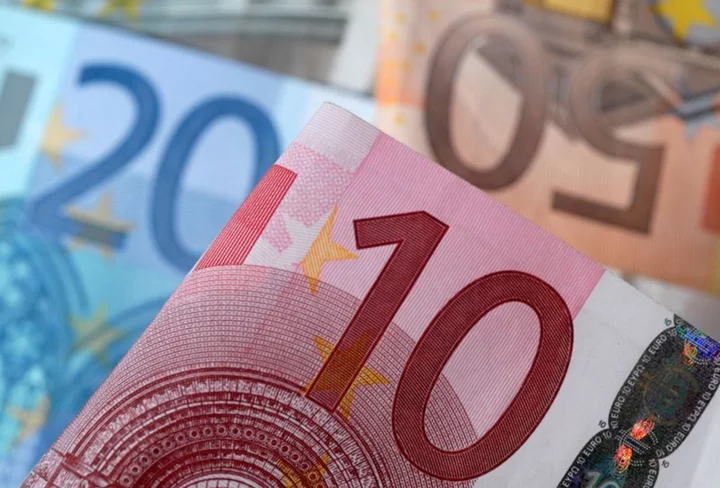By Harry Robertson and Alun John
LONDON (Reuters) -Germany's two-year bond yield jumped to its highest level since 2008 on Thursday, rising back above the peak it hit in March before jitters in the banking system rocked global markets.
The two-year yield rose to 3.393%, the highest since autumn 2008. It was last up 8 basis points (bps) at 3.366%. Yields move inversely to prices.
Global yields were already higher on the day, and rose further after data showed that U.S. private payrolls increased much more than expected in June.
Market analysts and traders said the minutes from the U.S. Federal Reserve's latest meeting, released on Wednesday, were likely another factor boosting yields on Thursday.
The minutes showed the bulk of policymakers expected they would need to tighten policy further, though they held interest rates at that meeting.
Giles Gale, head of European rates strategy at NatWest Markets, said investors were coming to terms with the idea that central bankers are going to keep rates "higher for longer".
"That central banks are going to break something and they'll be cutting rates soon, that's a story that just isn’t tracking," he said.
"It's been a week where frankly it's all been about fixed income weakness," he said. "There just doesn’t seem to be the enthusiasm for it."
Germany's two-year yield has been grinding higher in recent weeks as European Central Bank policymakers have stressed that interest rates are likely to rise further from the current 3.5% as underlying price pressures remain strong.
The yield reached a peak of 3.385% in March before tumbling as a crisis hit mid-sized U.S. banks and Credit Suisse, leading to the latter's takeover by rival UBS.
Germany's 10-year yield, the benchmark for the euro zone, was last up 12 bps at 2.603%.
Italy's 10-year yield was 16 bps higher at 4.328%. That caused the gap between Italian and German 10-year yields to widen slightly to 171 bps.
"Markets are saying that inflation is too high, and growth is still too strong, and we need more rate hikes," said Mike Riddell, senior portfolio manager at Allianz Global Investors.
"Central banks seem to be encouraging markets to believe this too, suggesting more hikes are ahead."
The U.S. private payrolls data came ahead of the closely watched official employment report on Friday.
Economists stressed that the private payrolls data is not necessarily a good guide to the official report, but markets nonetheless reacted strongly, betting that a strong labour market will likely push the Fed to hike rates again this month.
Traders who bet on the path of interest rates expect the ECB to raise borrowing costs to 4% by December, according to pricing in derivatives markets on Thursday.
(Reporting by Harry Robertson and Alun John; Editing by Alun John and Mark Potter)

